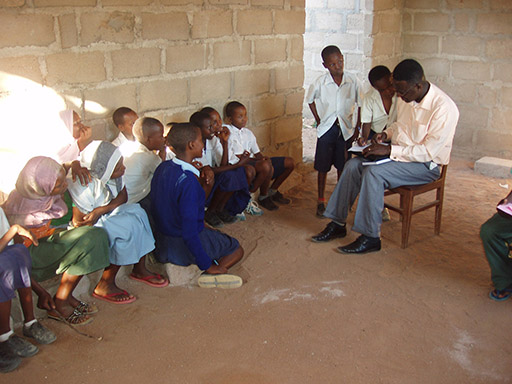2.5 Involving children in monitoring and evaluation

Child participation is increasingly being seen as good practice in community development programmes. As a result, children now participate in many programmes, not just when they start, but also in their planning and design. It is just as appropriate that children participate in the monitoring and evaluation of programmes that are intended to benefit them.
Involving children in monitoring and evaluation is important as children can provide a valuable source of information about their own needs and experiences. Parents and guardians may not be aware of all of their children’s individual circumstances, and children may not want to discuss some experiences with parents or other elders in their community. You will know from your study of Module 4, that children of all ages can be involved, providing the methods of involving them are age-appropriate.
As a health worker, you can involve children in ways that make them feel more respected. By listening to their views and taking them seriously, children are empowered and can reduce their dependence on others.
The UN Convention includes a number of articles that promotes children’s right to participation and to have their voices heard. You will have been introduced to these already if you studied earlier sessions.
Article 12 – Respect for the views of the child: When adults are making decisions that affect children, children have the right to say what they think should happen and have their opinions taken into account.
Article 13 – Freedom of expression: You have the right to find out things and share what you think with others, by talking, drawing, writing or in any other way unless it harms or offends other people.
Article 17 – Access to information: Children have the right to get information that is important to their health and well-being.
The importance of evaluation
